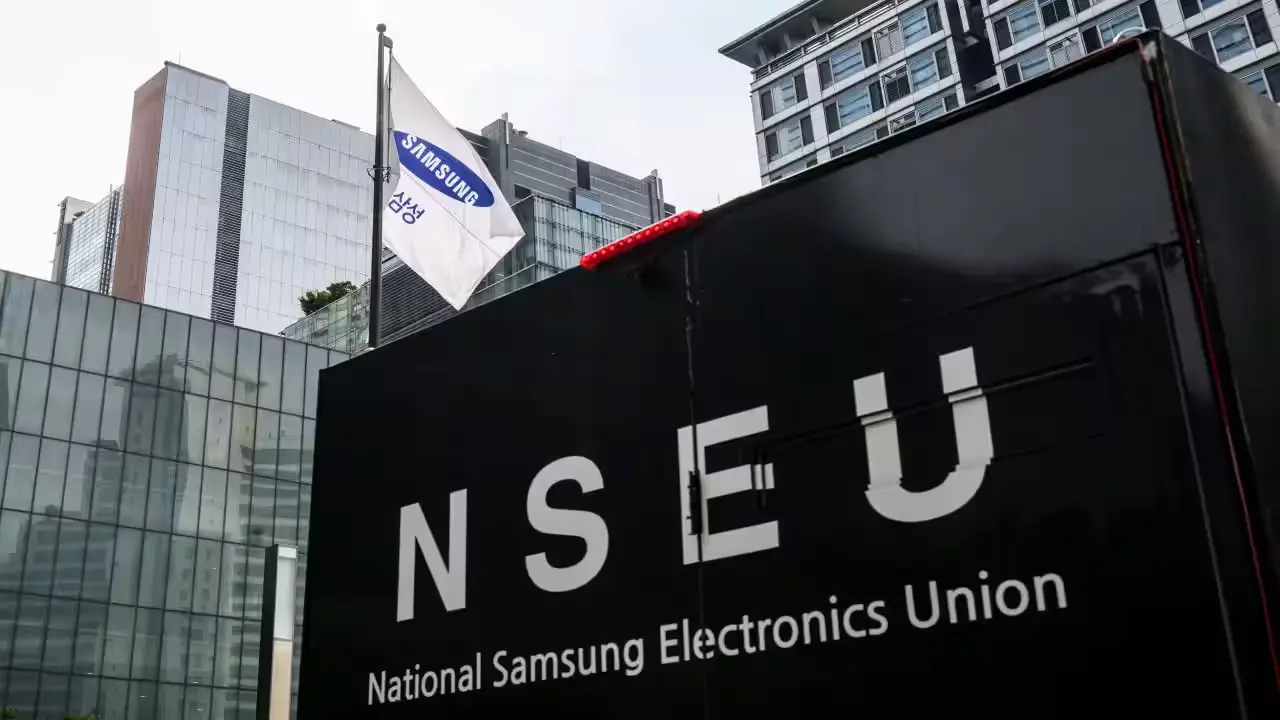Samsung Electronics workers began a three-day strike for better pay on Monday, threatening future action if South Korea’s largest corporation doesn’t meet their demands
The National Samsung Electronics Union (NSEU), which includes approximately 30,000 members and accounts for nearly 25% of the company’s South Korean workforce, also advocates for an additional day of annual leave for unionized employees and modifications to the employee incentive system.
According to analysts, the strike is unlikely to substantially impact output at the world’s largest memory chip manufacturer due to low participation and automated production. Nevertheless, it indicates a decreased staff morale at a critical juncture in the semiconductor industry as technology companies adopt artificial intelligence.
The union’s inaugural industrial action, which took place last month, involved the coordination of annual leave to execute a collective walkout. Samsung stated that the event did not have any effect on business operations. The company noted that production was not disrupted on Monday.
The union, which did not disclose the strike participation levels from the previous month, announced that 6,540 employees would be striking this week. Most workers will be located at manufacturing sites and in product development. The strike included employees supervising automated production lines and equipment, potentially impacting operations.
According to union officials, about 3,000 strikers participated in a rally in the rain near Samsung’s headquarters in Hwaseong, which is located south of Seoul.
Son Woo-mok, the union president, refuted media reports of minimal participation, stating to Reuters that the five-year-old organization needed more time to educate its members about the issues.
“Education regarding labor unions has been inadequate.” However, I do not believe that this participation is minimal, as our union is still relatively young compared to other unions,” he stated.
Lee Hyun-kuk, the union’s vice president, stated that additional disruptions may occur if Samsung fails to enhance its proposals.
Lee informed Reuters that Samsung’s proposals do not satisfy the union’s demands for increased pay and leave despite including flexibility in pay and annual leave conditions.
Union officials are also advocating for parity in the bonus system. They stated that incentives for rank-and-file employees are determined by subtracting the cost of capital from operating profit, while personal performance objectives determine those for executives.
Park Jun-ha, a 20-year-old engineer at Samsung’s chip packaging lines who joined the company in January, expressed his dissatisfaction with the company’s “opaque” bonus scheme. “I was telling people that I was proud to work at Samsung, but the truth is, I am not,” he stated.
Since Samsung committed to refraining from discouraging organized labor in 2020, the union’s membership has increased. In the same way that Samsung is grappling with the competition in processors used for artificial intelligence (AI) applications, its expanding voice is clamoring for attention, according to analysts.
The sluggish development of high bandwidth memory (HBM) chips, which are in high demand for use in AI processors, is being blamed by union officials for Samsung’s AI woes, as a result of which its share price performance has lagged that of compatriot chip rival SK Hynix.
Nevertheless, Samsung projected a more than 15-fold increase in second-quarter operating profit on Friday, as the AI boom’s rebounding chip prices lifted earnings from the year prior’s low comparison base.
The company’s share price increased by 0.2% in the afternoon trade on Monday, following a 1.72% increase earlier in the session, which marked its highest level since January 2021. It experienced a 6.9% increase in value last week due to preliminary quarterly earnings that surpassed analyst expectations.



